Academy of Ideas
The Academy of Ideas has been organising public debates to challenge contemporary knee-jerk orthodoxies since 2000. Subscribe to our channel for recordings of our live conferences, discussions and salons, and find out more at www.academyofideas.org.uk
The Academy of Ideas has been organising public debates to challenge contemporary knee-jerk orthodoxies since 2000. Subscribe to our channel for recordings of our live conferences, discussions and salons, and find out more at www.academyofideas.org.uk
Episodes
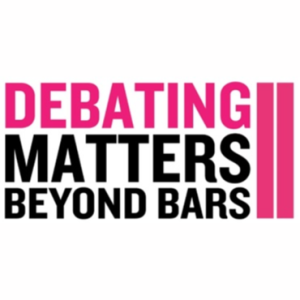
Wednesday Dec 21, 2022
Debating Matters Beyond Bars: Jon Floyd and Heather Phillips
Wednesday Dec 21, 2022
Wednesday Dec 21, 2022
This is guest podcast from our colleagues at Debating Matters.
Initiated in 2015, Debating Matters Beyond Bars is a project which takes DM's schools-debating format inside prisons. Using our acclaimed substance-over-style format, teams of prisoners engage in debate with one another on a whole range of contemporary social, political and cultural topics. The programme aims to inspire them to think about issues beyond their current situation and to look forward to their life ahead – in other words, beyond bars!
In this podcast, Mo Lovatt - DM's national coordinator - and Geoff Kidder sat down with former Beyond Bars competitor Jon Floyd to discuss the impact the programme had on him when he took part in 2015 while he was serving his sentence. We were also joined by Heather Phillips, the chief executive of Beating Time, which runs, amongst other things, Inside Job – an employment programme she set up with Jon in 2020.
For Jon, taking part in Beyond Bars was the catalyst for starting that programme with Heather as well as a whole range of initiatives he’s been involved with since 2015. As he says in the podcast, Beyond Bars gave him a purposeful activity, helped him change direction and kickstarted his journey of rehabilitation.
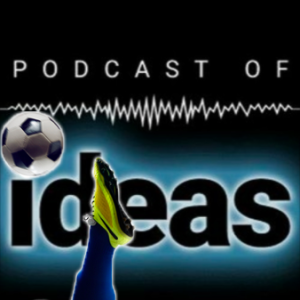
Friday Dec 16, 2022
#SportscastofIdeas: World Cup - the final
Friday Dec 16, 2022
Friday Dec 16, 2022
Regular Sportscast of Ideas guests Geoff Kidder, Rob Lyons and Tom Collyer round up their World Cup highlights ahead of the final.
Subscribe to our Substack to keep up-to-date with all of our work at the Academy of Ideas: clairefox.substack.com/subscribe

Friday Dec 02, 2022
#SportscastOfIdeas: World Cup 2022 Upsets and Underdogs
Friday Dec 02, 2022
Friday Dec 02, 2022
Regular Sportscast of Ideas guests Geoff Kidder and Rob Lyons are joined by Tom Collyer, Denis Russell and Simon McKeon to discuss the kick off of the World Cup 2022.
Subscribe to our Substack to keep up-to-date with all of our work at the Academy of Ideas: clairefox.substack.com/subscribe

Friday Nov 25, 2022
#SportscastOfIdeas: World Cup 2022 begins
Friday Nov 25, 2022
Friday Nov 25, 2022
Regular Sportscast of Ideas guests Geoff Kidder and Rob Lyons are joined by Tom Collyer, Hilary Salt and Simon McKeon to discuss the kick off of the World Cup 2022.
Subscribe to our Substack to keep up-to-date with all of our work at the Academy of Ideas: https://clairefox.substack.com/subscribe
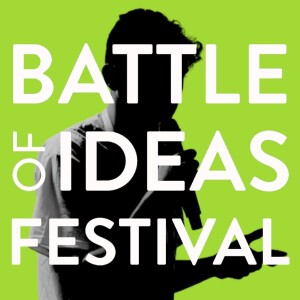
Thursday Nov 17, 2022
Call To Courage: Winning The Battle Of Ideas
Thursday Nov 17, 2022
Thursday Nov 17, 2022
This is a recording from the Battle of Ideas festival 2022 at Church House, Westminster: https://www.battleofideas.org.uk/session/call-to-courage-winning-the-battle-of-ideas/
Subscribe to our Substack to get podcasts, updates and more: https://clairefox.substack.com/subscribe
Today – at a time of enormous upheavals and significant political challenges – do we need to bring courage back into politics? There are certainly encouraging signs – do recent successes of gender-critical activists, the push back against diversity policies, or support for those threatened with being cancelled indicate new forms of solidarity? Can fighting back against the cost-of-living crisis, under the banner of Enough is Enough, forge a new movement? And as millions of UK citizens courageously refused to back down – and succeeded in forcing the establishment to ensure their democratic vote was not overturned – is the democratic Brexit spirit of taking back control ready to be rekindled?
SPEAKERS:Julie Bindel journalist; author, Feminism for Women: the real route to liberation
Professor Sunetra Guptaprofessor of theoretical epidemiology, Department of Zoology, University of Oxford; award-winning novelist
Ali Mirajcolumnist, TheArticle; founder, the Contrarian Prize; infrastructure financier; DJ
Tim Stanleycolumnist and leader writer, Daily Telegraph; author, Whatever Happened to Tradition? History, Belonging and the Future of the West
Bruno WaterfieldBrussels correspondent, The Times
CHAIR: Claire Foxdirector, Academy of Ideas; independent peer, House of Lords; author, I STILL Find That Offensive!
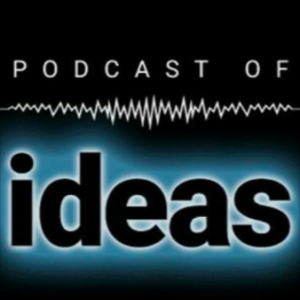
Friday Oct 21, 2022
Podcast of Ideas - Claire Fox: ’Liz Truss is gone, but this isn’t over’
Friday Oct 21, 2022
Friday Oct 21, 2022
Liz Truss has gone, and we’ll be on to another Prime Minister (or maybe even Boris). At the moment, things seem utterly out of our hands. That is why it’s so important we understand what is going on, what historical trends are shaping it, and, even now, what opportunities exist.
Claire sat down with Academy of Ideas colleague Jacob Reynolds to do just that. At this moment, the key thing is to listen, read, think and argue. Please share our conversation with everyone you know who is angry, confused and demanding something better.
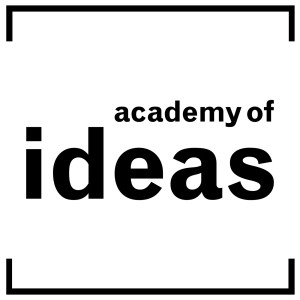
Friday Sep 30, 2022
Is the UK heading for economic meltdown?
Friday Sep 30, 2022
Friday Sep 30, 2022
Ahead of the Battle of Ideas festival 2022 in London on 15 & 16 October, Jacob Reynolds talks to Phil Mullan and Rob Lyons about the turmoil in the financial markets this week and the longer-term problems for the UK economy.
For more about the festival, visit the Battle of Ideas festival website.

Wednesday Jun 29, 2022
How can we end the cost-of-living crisis?
Wednesday Jun 29, 2022
Wednesday Jun 29, 2022
Recording of an Academy of Ideas debate on Tuesday 28 June 2022.
INTRODUCTIONAround the world, prices of a wide range of goods and commodities have been rising sharply for the past few months. In particular, the wholesale cost of energy has been rising fast as the world economy recovered from the pandemic restrictions. Petrol prices have risen by almost a third in the past 12 months. The UK domestic energy ‘price cap’, which hit a low of £1,042 in 2020, is expected to rise to £2,800 in October. Consumer price inflation has hit 9% and is likely to reach 10% by the end of the year. For those on lower incomes, who spend more of their income on food and energy, the impact is even greater.
There are multiple explanations for the rises: the post-pandemic recovery and problems with shipping have been widely cited. The war in Ukraine and sanctions against Russia are hitting energy and food prices. Many economists also point to the rise in the money supply – thanks to ultra-low interest rates, quantitative easing and huge government spending programmes. Rises in production have not kept pace with rising demand, so prices have risen.
But the other side of the story is that wages are not keeping up with rising prices. As a result, most people are seeing real-terms cuts in their living standards. Governments and central bankers seem desperate to keep a lid on wage rises, desperate to avoid a ‘wage-price spiral’, but the effect is to make most people significantly poorer. Those on fixed incomes may be hardest hit of all.
What are the main reasons for the rise in living costs? What can be done to help reduce the impact? Should we be looking beyond short-term and temporary factors? Is this a crisis that has been coming for some time?
SPEAKERSRobert Fig principal, Metals Risk Team, a commodity risk-management consultancy; previously worked at ArcelorMittal and London Metals Exchange
Phil Mullanwriter, lecturer and business manager; author, Beyond Confrontation: globalists, nationalists and their discontents
Hilary Saltactuary; founder, First Actuarial


